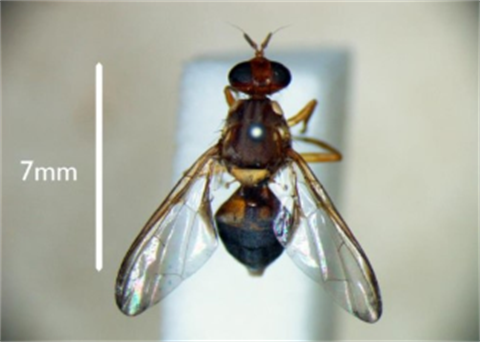Fruit fly sparks changes to FOGO
Published on 22 February 2018

As a precautionary measure, the City of Launceston is asking users of its FOGO kerbside collection service to halt the disposal of fruit and vegetables in FOGO bins until further notice.
The Council is acting in response to the recent fruit fly incursion in the north-east and north-west of the state.
While the Launceston municipality is currently outside Biosecurity Tasmania's fruit fly control area, the Council believes it is appropriate to take a precautionary approach.
For the time being, residents should dispose of unwanted fruit and vegetables by double-wrapping them in plastic and depositing them in kerbside rubbish bins, as per the public advice from Biosecurity Tasmania.
People should not compost unwanted fruit and vegetables, nor dump them.
The City of Launceston will be diverting FOGO material collected in the past two weeks to landfill.
City of Launceston Director of Infrastructure Services Shane Eberhardt said he hoped FOGO supporters would understand.
"We are delighted with how Launceston residents have embraced our new FOGO collection service, and we know how passionate users are about diverting their organic waste away from landfill.
"So having to bury FOGO material we've collected over the past couple of weeks is extremely disappointing, and we hope FOGO users will understand our position.
"It's clear the state is grappling with a serious biosecurity threat, and we feel it's appropriate that we do what we can to assist.
"For the time being, we are asking FOGO users to stop placing unwanted fruit and vegetables into their FOGO bins, and instead wrap them in two layers of plastic to go in their kerbside rubbish bin, as per the advice from Biosecurity Tasmania.
"We'll be closely watching developments in this situation, and will provide further advice once we have it.
"In the meantime, please report all suspect fruit to Biosecurity Tasmania on 6165 3774."
Full information about fruit fly, what to look for and how to report it is available on the DPIPWE website at www.dpipwe.tas.gov.au/fruitfly